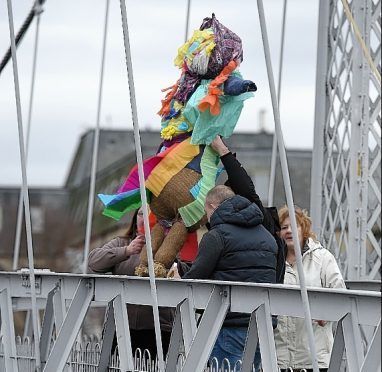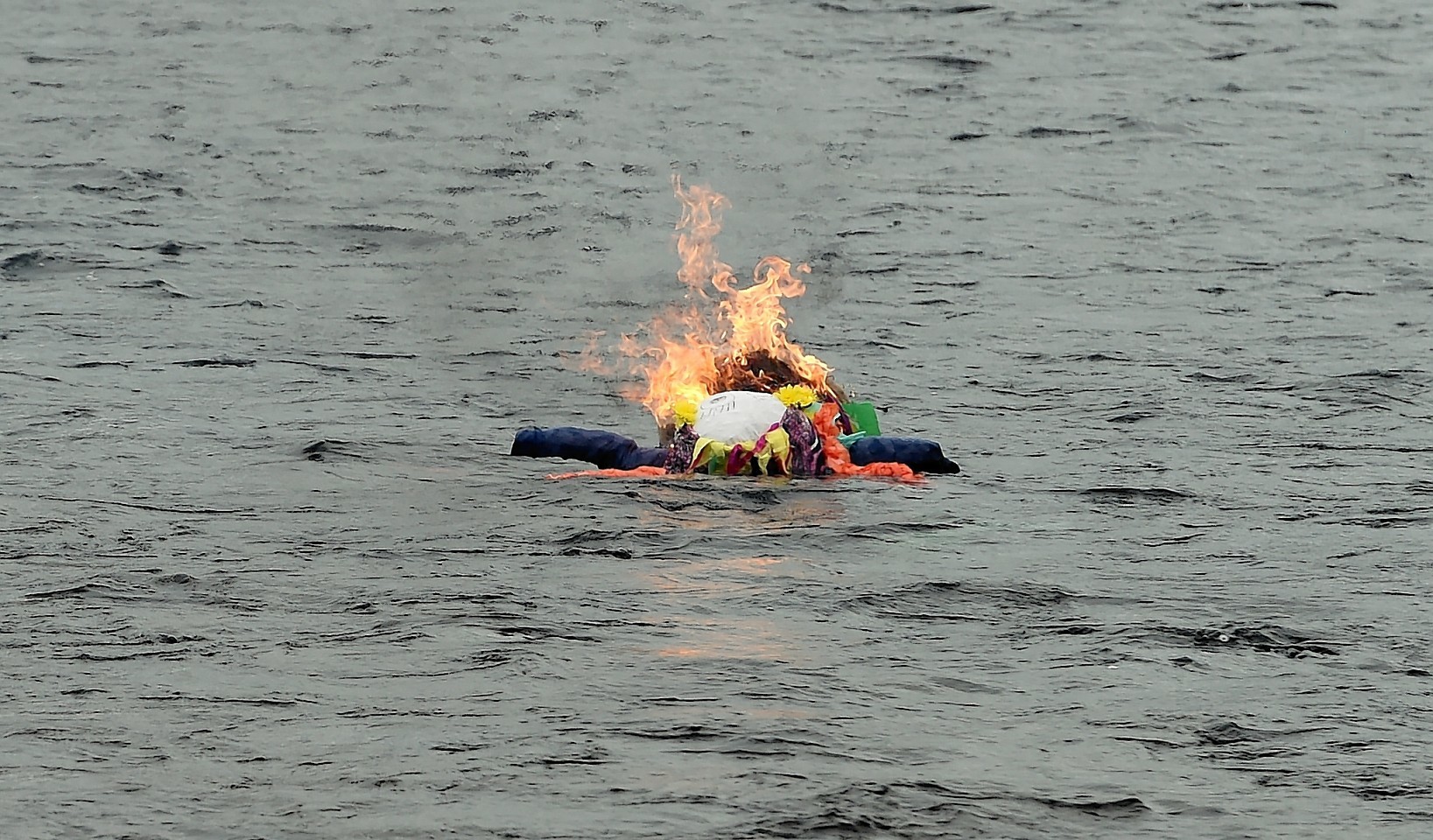A burning effigy has been thrown into the River Ness as part of a traditional Polish ceremony marking the end of winter and the arrival of spring.
More than 70 pupils from the Inverness Polish Saturday School took part in the event.
It was the first time the tradition had been celebrated in the Highland capital – and organisers now hope to make it an annual occasion.
The life-sized doll was thrown into the rapids from the city’s Greig Street bridge.
She represents Marzanna, a nightmarish Baltic and Slavic goddess who is often associated with death and winter.
Her symbolic drowning – celebrated across much of eastern Europe in various ways – is supposed to mark the end of the season, and nature’s return to life with the arrival of spring.
The youngsters from the Polish Saturday School in Inverness, which was established eight years ago and has a roll of 90 pupils from Polish, Scottish and mixed families, were encouraged to look for signs of spring as they made their way to the banks of the River Ness on Saturday.
Zosia Wierzbowicz-Fraser, the school’s director, said: “It wasn’t actually raining for a change, which was wonderful.
“It’s a centuries-old pagan tradition from Poland, and is remembered by school children across the country. It’s to say goodbye to the winter and welcome the spring and summer.
“Because we made this huge doll it has attracted a lot of attention. It was the size of a small adult.
“She lit up very well and sailed all the way down the river until it was just a speck.”
The school sits on Saturdays for youngsters aged between four and 19, and aims to integrate Polish and Scottish children.
Mrs Wierzbowicz-Fraser, who helped found the Inverness Polish Association a decade ago, added: “The pupils had a great time.
“It’s a big event but it’s the first time we have ever done it. I hope we will do it again next year.”

